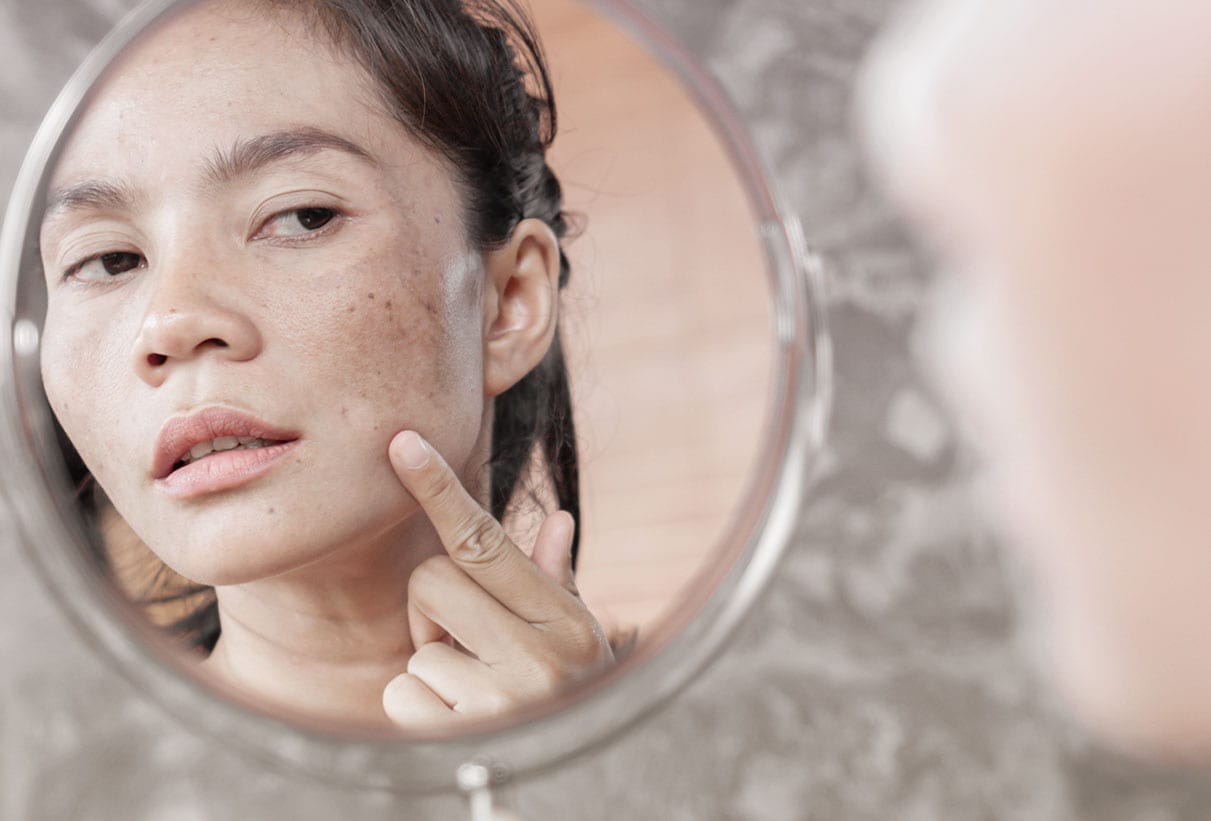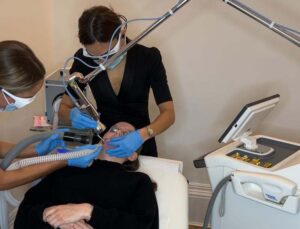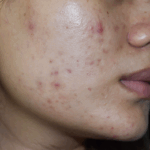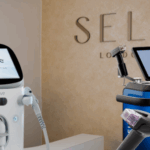
Acne is a pervasive skin condition that affects millions worldwide, transcending age, gender, and ethnicity. As a consultant dermatologist with years of clinical experience, I have witnessed first-hand the profound impact acne can have on individuals’ lives, not only in terms of physical appearance but also in their emotional well-being.
The Physical and Emotional Burden of Acne
Acne manifests in various forms, from comedones and papules to severe cysts and nodules, predominantly appearing on the face, neck, chest, back, and shoulders. While the physical symptoms of acne are visible, its emotional toll is often underestimated. Individuals with acne frequently experience feelings of embarrassment, self-consciousness, and frustration about their appearance. These emotions can lead to diminished self-esteem, social withdrawal, and even symptoms of anxiety and depression.
The impact of acne extends beyond skin deep. Adolescents and young adults, in particular, may face significant challenges in developing self-confidence and social relationships. The relentless cycle of breakouts and scarring can erode self-esteem, affecting academic or professional performance and overall quality of life. As acne persists into adulthood, it brings with itself a new set of issues – frustration one should have “grown out” of it, not being taken seriously in senior work positions, assumptions of health and hygiene others make about suffering with acne.
The Influence of Social Media on Acne Advice
In today’s digital age, social media platforms serve as ubiquitous sources of information and inspiration, including skincare advice. However, the proliferation of beauty influencers, skincare gurus, and product endorsements on social media has blurred the lines between evidence-based recommendations and anecdotal claims.
Misleading Information: Social media often promotes skincare routines and products based on personal anecdotes rather than scientific evidence. What works for one individual may not be suitable—or could exacerbate acne—for another. The allure of quick fixes and overnight solutions can lead to unrealistic expectations and disappointment.
Commercialisation of Skincare: Influencer marketing and sponsored content on social media platforms prioritize product sales over efficacy; oftentimes, ads remain undeclared or hidden at the very end of posts against all UK advertising guidelines. Trendy skincare products may promise transformative results without substantiated evidence, perpetuating consumer confusion and overspending on ineffective treatments.
Idealised Beauty Standards: The curated images and filtered selfies prevalent on social media create unattainable beauty standards. Individuals with acne may compare themselves unfavourably to flawless, airbrushed portrayals, fostering feelings of inadequacy and self-doubt.

The Role of a Specialist Dermatologist in Acne Treatment Navigating the complexities of acne treatment requires expert guidance from a consultant dermatologist specialising in acne and its sequelae (eg acne scarring). There are some compelling reasons why consulting a dermatologist is essential for managing acne effectively:
1. Accurate Diagnosis and Personalized Treatment Plans
Consultant dermatologists undergo extensive training in diagnosing and treating skin conditions, including acne. They conduct thorough assessments to determine the type, severity, and underlying causes of acne specific to each patient. This personalised approach ensures that treatment plans are tailored to individual needs, optimising outcomes and minimizing adverse effects. Consultant dermatologists are also best-placed to recognise when something is not acne, and maybe another skin condition mimicking a similar outward appearance.
2. Evidence-Based Therapies and Advanced Treatments
Specialized dermatologists leverage evidence-based therapies supported by clinical research and scientific validation. They have access to prescription-strength medications, topical treatments, oral antibiotics, hormonal therapies, and advanced procedures like laser therapy or chemical peels. These treatments are designed to target acne at its root cause, promoting clearer skin and preventing future breakouts.
3. Prevention of Delayed Treatment and Complications
Prompt intervention by a consultant dermatologist can prevent acne from worsening and reduce the risk of long-term complications such as scarring, hyperpigmentation, or worsening mental health. Early diagnosis allows for timely implementation of effective treatments, saving patients from prolonged discomfort, frustration, and unnecessary expenses associated with trial-and-error approaches or over-the-counter remedies.
4. Holistic Approach to Care
Consultant dermatologists specialising in acne adopt a holistic approach to management that considers both the physical and psychological aspects of the condition. Beyond prescribing medications, they educate patients on skincare practices, dietary influences, lifestyle modifications, acne scarring, and stress management techniques that support overall skin health. Addressing the emotional impact of acne through empathetic counselling or referral to mental health professionals is integral to comprehensive care.

Why Expert Guidance Matters in Acne Care
Choosing a consultant dermatologist for acne treatment offers numerous advantages that extend beyond symptom management:
Comprehensive Evaluation and Diagnosis
Dermatologists conduct comprehensive evaluations to identify contributing factors to acne, such as hormonal imbalances, dietary triggers, or underlying medical conditions. This thorough assessment guides targeted interventions that address the root cause of acne and promote long-term skin health. This is very different approach, for example, to a clinic who’s primary focus is injectables such as dermal filler, or a non-specialist who will not have the same depth and breadth of experience.
- Access to Cutting-Edge Technologies and Therapies
Consultant dermatologists specialising in acne and acne scarring have access to state-of-the-art technologies and innovative therapies that are not available over-the-counter or in non-specialist clinics. From advanced laser treatments to personalised skincare regimens, dermatologists and their expert-led teams offer tailored solutions that deliver superior results.
- Patient Education and Empowerment
Empowering patients with knowledge about their skin condition fosters confidence and proactive involvement in treatment. Dermatologists educate patients about acne triggers, effective skincare routines, and realistic expectations for treatment outcomes. This education reduces reliance on unverified information from social media and promotes informed decision-making in skincare choices.
The Importance of Consulting a Registered Consultant Dermatologist in the UK
In the United Kingdom, ensuring that your dermatologist is properly qualified and registered is crucial for receiving safe and effective treatment. Here’s why it’s essential to choose a General Medical Council registered consultant dermatologist:
- Specialist Expertise and Training
Consultant dermatologists undergo rigorous training and examination to achieve specialist registration with the General Medical Council (GMC). This accreditation signifies their proficiency in diagnosing and treating skin conditions, including acne, using evidence-based practices. In the US, this is the equivalent of a “board-certified” dermatologist – this is the highest level of training one can have in skin.
- Accountability and Professional Standards
GMC registration requires adherence to strict ethical guidelines and professional standards. Registered consultant dermatologists uphold patient safety, confidentiality, and informed consent throughout their practice, ensuring high-quality care and accountability.
- Access to GMC Online Register
Patients can verify a dermatologist’s credentials and specialist registration status by checking the GMC online register. This tool allows individuals to confirm that their dermatologist possesses the necessary qualifications and expertise to provide specialised acne treatment. The online register is available to everyone and the key thing you are searching for is evidence the doctor in question is on the “specialist register for dermatology”.
Conclusion: Promoting Skin Health and Emotional Well-Being
Acne is a multifaceted skin condition with profound implications for mental health and quality of life. By acknowledging the psychological burden of acne and advocating for evidence-based treatments, dermatologists play a pivotal role in enhancing patient outcomes and restoring self-confidence.
In an era dominated by social media influence and commercialised skincare trends, navigating acne advice requires discernment and professional guidance. Specialised dermatological care offers personalised treatment plans, advanced therapies, and holistic support that address both the physical symptoms and emotional impact of acne.
As a consultant dermatologist committed to compassionate care and clinical excellence, I encourage individuals affected by acne to seek professional evaluation and treatment. Together, we can navigate the complexities of acne management, promote skin health, and improve overall well-being for those living with this challenging condition.





